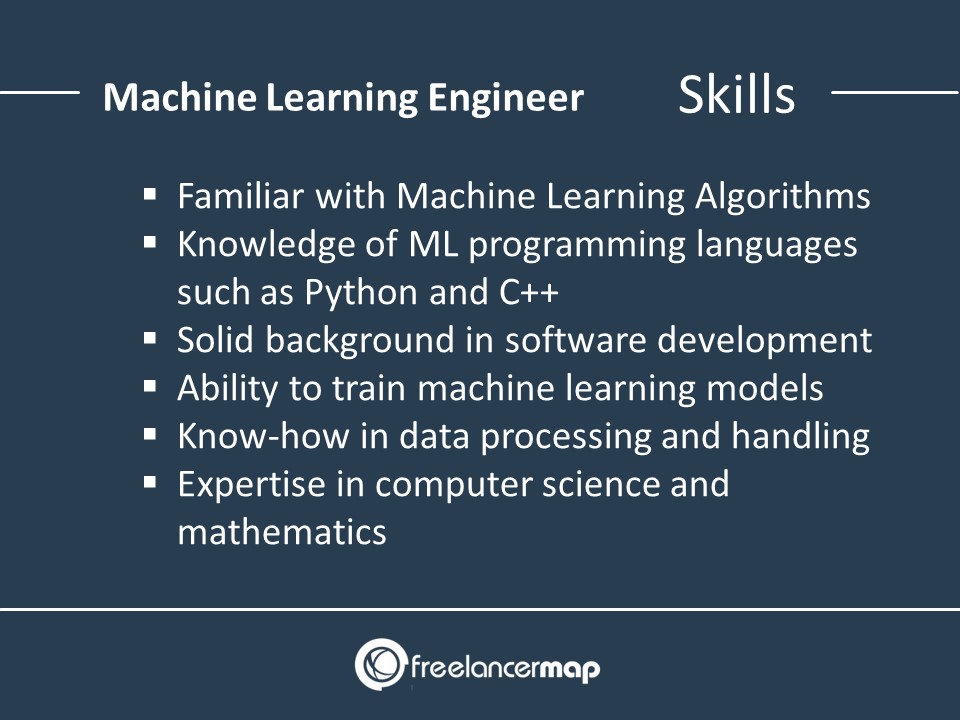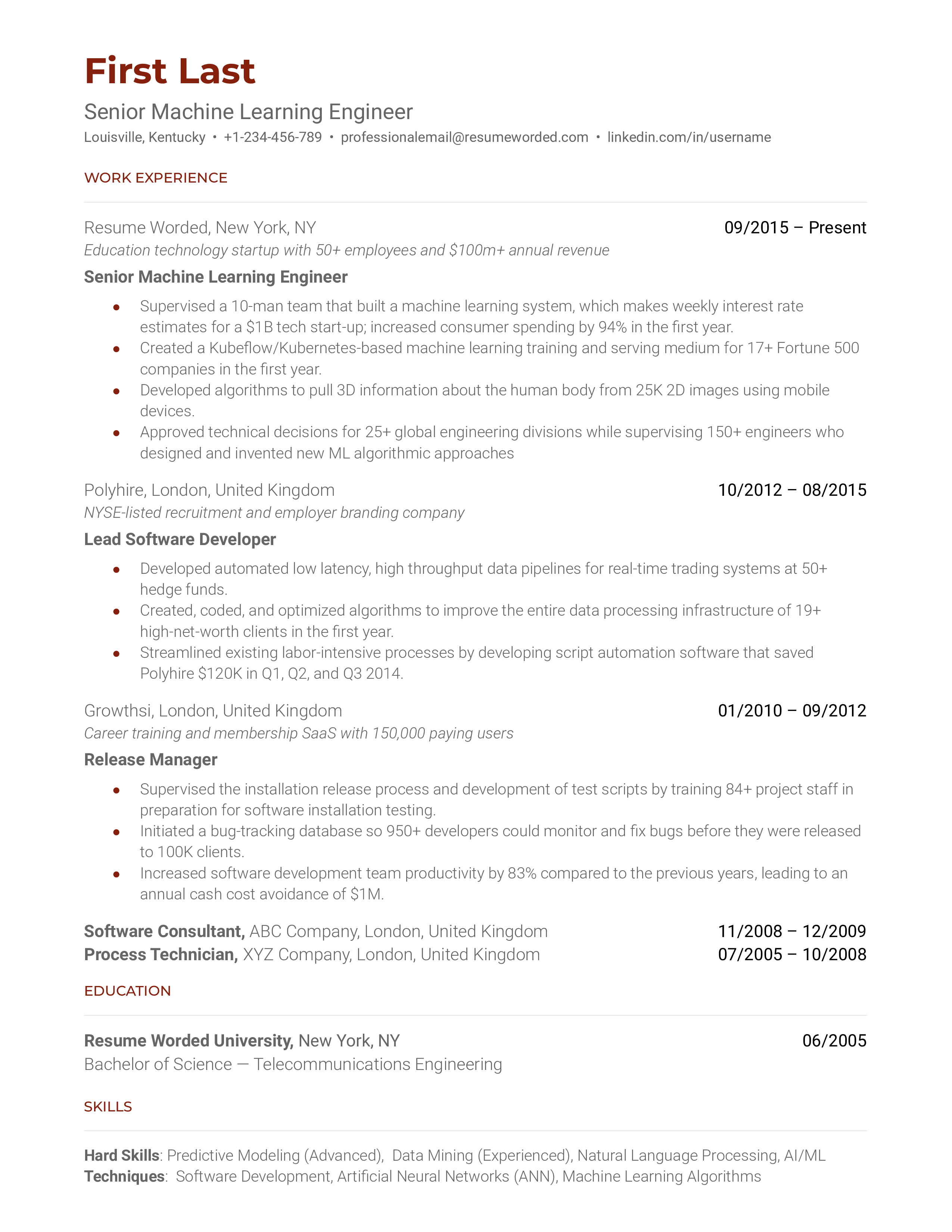All Categories
Featured
Table of Contents
- – Zuzoovn/machine-learning-for-software-engineer...
- – Machine Learning Crash Course Things To Know B...
- – How Machine Learning & Ai Courses - Google Cl...
- – Get This Report about Practical Deep Learning...
- – Untitled Fundamentals Explained
- – Excitement About How To Become A Machine Lea...
- – Little Known Facts About Best Machine Learni...
Some individuals assume that that's cheating. Well, that's my entire occupation. If someone else did it, I'm going to use what that individual did. The lesson is placing that aside. I'm forcing myself to believe with the possible solutions. It's even more about consuming the content and attempting to use those concepts and much less concerning locating a library that does the work or finding someone else that coded it.
Dig a little bit deeper in the math at the start, simply so I can develop that structure. Santiago: Lastly, lesson number seven. I do not believe that you have to recognize the nuts and screws of every algorithm prior to you use it.
I've been utilizing semantic networks for the longest time. I do have a sense of how the gradient descent works. I can not describe it to you now. I would certainly have to go and examine back to in fact get a far better instinct. That does not suggest that I can not fix things using neural networks? (29:05) Santiago: Attempting to compel people to believe "Well, you're not going to achieve success unless you can describe every information of exactly how this functions." It goes back to our sorting example I assume that's simply bullshit advice.
As an engineer, I have actually serviced several, numerous systems and I've used numerous, several points that I do not recognize the nuts and screws of how it works, despite the fact that I understand the impact that they have. That's the last lesson on that string. Alexey: The funny point is when I believe regarding all these collections like Scikit-Learn the formulas they use inside to execute, for instance, logistic regression or something else, are not the like the formulas we study in machine learning classes.
Zuzoovn/machine-learning-for-software-engineers - Truths
Even if we attempted to find out to obtain all these fundamentals of maker discovering, at the end, the formulas that these collections utilize are different. Santiago: Yeah, absolutely. I assume we need a whole lot a lot more pragmatism in the market.

By the way, there are 2 different courses. I usually speak to those that wish to operate in the sector that wish to have their effect there. There is a course for researchers which is totally various. I do not attempt to mention that since I do not know.
However right there outside, in the sector, materialism goes a long means without a doubt. (32:13) Alexey: We had a remark that claimed "Really feels even more like inspirational speech than speaking concerning transitioning." Possibly we ought to change. (32:40) Santiago: There you go, yeah. (32:48) Alexey: It is a good inspirational speech.
Machine Learning Crash Course Things To Know Before You Get This
One of the important things I wished to ask you. I am taking a note to chat concerning becoming much better at coding. Initially, allow's cover a pair of things. (32:50) Alexey: Let's begin with core tools and structures that you need to find out to actually transition. Allow's state I am a software application designer.
I recognize Java. I understand how to make use of Git. Maybe I recognize Docker.
Santiago: Yeah, absolutely. I think, number one, you ought to start discovering a little bit of Python. Because you already recognize Java, I do not think it's going to be a substantial change for you.
Not because Python is the very same as Java, but in a week, you're gon na obtain a lot of the differences there. Santiago: Then you get certain core devices that are going to be used throughout your whole profession.
How Machine Learning & Ai Courses - Google Cloud Training can Save You Time, Stress, and Money.
That's a collection on Pandas for information manipulation. And Matplotlib and Seaborn and Plotly. Those 3, or among those 3, for charting and displaying graphics. You obtain SciKit Learn for the collection of device understanding algorithms. Those are devices that you're mosting likely to need to be using. I do not suggest simply going and discovering about them unexpectedly.
Take one of those programs that are going to begin introducing you to some troubles and to some core ideas of equipment learning. I do not remember the name, yet if you go to Kaggle, they have tutorials there for free.
What's good concerning it is that the only need for you is to recognize Python. They're going to offer an issue and inform you exactly how to make use of choice trees to resolve that certain issue. I believe that procedure is exceptionally effective, since you go from no maker discovering background, to recognizing what the trouble is and why you can not solve it with what you know today, which is straight software program design methods.
Get This Report about Practical Deep Learning For Coders - Fast.ai
On the other hand, ML engineers specialize in structure and releasing device discovering models. They focus on training models with data to make forecasts or automate tasks. While there is overlap, AI designers deal with more diverse AI applications, while ML engineers have a narrower focus on artificial intelligence formulas and their practical application.
Machine discovering designers focus on establishing and deploying equipment discovering versions into manufacturing systems. On the other hand, data researchers have a broader duty that consists of data collection, cleansing, exploration, and building designs.
As companies increasingly embrace AI and artificial intelligence technologies, the demand for knowledgeable experts grows. Maker knowing designers function on innovative tasks, add to advancement, and have affordable wages. Success in this field needs continuous knowing and maintaining up with progressing modern technologies and techniques. Artificial intelligence roles are normally well-paid, with the capacity for high making capacity.
ML is essentially various from standard software application growth as it concentrates on teaching computers to discover from data, rather than programming specific regulations that are executed methodically. Uncertainty of end results: You are probably made use of to composing code with foreseeable outputs, whether your function runs when or a thousand times. In ML, nevertheless, the end results are less specific.

Pre-training and fine-tuning: How these designs are trained on large datasets and afterwards fine-tuned for details tasks. Applications of LLMs: Such as text generation, sentiment analysis and info search and retrieval. Documents like "Attention is All You Required" by Vaswani et al., which presented transformers. Online tutorials and programs focusing on NLP and transformers, such as the Hugging Face program on transformers.
Untitled Fundamentals Explained
The capability to handle codebases, merge adjustments, and deal with conflicts is equally as important in ML advancement as it remains in standard software projects. The skills developed in debugging and testing software program applications are very transferable. While the context might transform from debugging application logic to identifying concerns in information processing or model training the underlying concepts of organized investigation, theory screening, and repetitive refinement are the same.
Machine learning, at its core, is heavily reliant on stats and chance theory. These are crucial for recognizing just how formulas discover from data, make predictions, and review their performance.
For those thinking about LLMs, a comprehensive understanding of deep knowing architectures is beneficial. This consists of not just the auto mechanics of neural networks but additionally the architecture of particular designs for various usage cases, like CNNs (Convolutional Neural Networks) for picture handling and RNNs (Frequent Neural Networks) and transformers for consecutive data and natural language processing.
You must understand these issues and discover strategies for recognizing, mitigating, and connecting concerning bias in ML versions. This includes the prospective impact of automated choices and the moral effects. Numerous designs, particularly LLMs, call for considerable computational sources that are often given by cloud systems like AWS, Google Cloud, and Azure.
Structure these skills will certainly not only assist in a successful change right into ML yet likewise ensure that designers can add efficiently and responsibly to the advancement of this dynamic field. Theory is important, however nothing defeats hands-on experience. Start working on projects that enable you to use what you have actually discovered in a useful context.
Develop your jobs: Beginning with simple applications, such as a chatbot or a message summarization device, and gradually raise intricacy. The field of ML and LLMs is swiftly developing, with new breakthroughs and modern technologies emerging consistently.
Excitement About How To Become A Machine Learning Engineer & Get Hired ...
Contribute to open-source projects or create blog site articles concerning your learning journey and jobs. As you obtain experience, start looking for chances to integrate ML and LLMs into your job, or look for new roles concentrated on these innovations.

Vectors, matrices, and their role in ML algorithms. Terms like model, dataset, functions, tags, training, inference, and validation. Information collection, preprocessing strategies, model training, analysis processes, and release considerations.
Decision Trees and Random Woodlands: Intuitive and interpretable versions. Assistance Vector Machines: Optimum margin category. Matching trouble kinds with ideal designs. Balancing efficiency and complexity. Basic structure of semantic networks: neurons, layers, activation functions. Split calculation and ahead breeding. Feedforward Networks, Convolutional Neural Networks (CNNs), Recurring Neural Networks (RNNs). Photo acknowledgment, series prediction, and time-series analysis.
Data circulation, improvement, and function engineering strategies. Scalability concepts and efficiency optimization. API-driven approaches and microservices integration. Latency administration, scalability, and variation control. Constant Integration/Continuous Deployment (CI/CD) for ML operations. Design monitoring, versioning, and performance tracking. Finding and dealing with changes in version performance gradually. Addressing efficiency bottlenecks and resource management.
Little Known Facts About Best Machine Learning Courses & Certificates [2025].

You'll be presented to three of the most appropriate components of the AI/ML discipline; monitored understanding, neural networks, and deep knowing. You'll realize the differences in between conventional shows and equipment learning by hands-on growth in monitored discovering prior to building out complicated dispersed applications with neural networks.
This training course acts as a guide to machine lear ... Program A lot more.
Table of Contents
- – Zuzoovn/machine-learning-for-software-engineer...
- – Machine Learning Crash Course Things To Know B...
- – How Machine Learning & Ai Courses - Google Cl...
- – Get This Report about Practical Deep Learning...
- – Untitled Fundamentals Explained
- – Excitement About How To Become A Machine Lea...
- – Little Known Facts About Best Machine Learni...
Latest Posts
How To Prepare For Data Engineer System Design Interviews
The Best Courses For Full-stack Developer Interview Preparation
The 100 Most Common Coding Interview Problems & How To Solve Them
More
Latest Posts
How To Prepare For Data Engineer System Design Interviews
The Best Courses For Full-stack Developer Interview Preparation
The 100 Most Common Coding Interview Problems & How To Solve Them